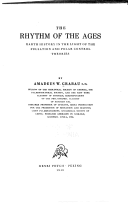The Impossibility of Continental Drift
Even more difficult to explain, than the breaking-up of a single mass into fragments, and the drifting apart of these blocks to form the foundations of the present-day continents, is the explanation of the original production of the single mass, or PANGAEA, by the concentration of the former holosphere of granitic sial into a hemisphere of compressed and crushed gneisses and schists. Creep and the effects of compression, due to shrinking or other causes, have been appealed to but this is hardly a satisfactory explanation. The earth could no more shrug itself out of its outer rock-shell unaided, than an animal could shrug itself out of its hide, or a man wriggle out of his skin, or even out of his closely buttoned coat, without assistance either of his own hands or those of others.
Notes:
It does sound crazy on the face of it.
Folksonomies: hypothesis paradigm continental drift
Taxonomies:
/health and fitness/disorders/mental disorder/panic and anxiety (0.283321)
/art and entertainment/visual art and design/painting (0.248708)
/health and fitness/aging (0.194507)
Keywords:
closely buttoned coat (0.997938 (negative:-0.435158)), single mass (0.824903 (negative:-0.220131)), Continental Drift (0.632405 (negative:-0.528767)), present-day continents (0.603086 (neutral:0.000000)), man wriggle (0.571865 (negative:-0.518471)), satisfactory explanation (0.528063 (neutral:0.000000)), original production (0.499735 (negative:-0.207788)), Impossibility (0.210363 (negative:-0.528767))
Concepts:
Plate tectonics (0.966879): dbpedia | freebase | opencyc
Geology (0.928569): dbpedia | freebase | opencyc
Continent (0.885996): dbpedia | freebase | opencyc
Continental crust (0.783491): dbpedia | freebase
Metamorphic rock (0.743747): dbpedia | freebase | opencyc
South America (0.725348): dbpedia | freebase | yago
Pangaea (0.713772): dbpedia | freebase | yago
Supercontinent (0.694984): dbpedia | freebase





